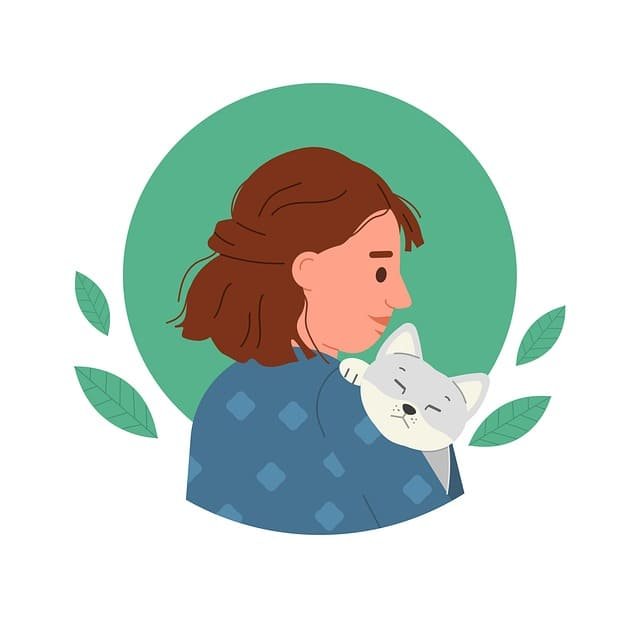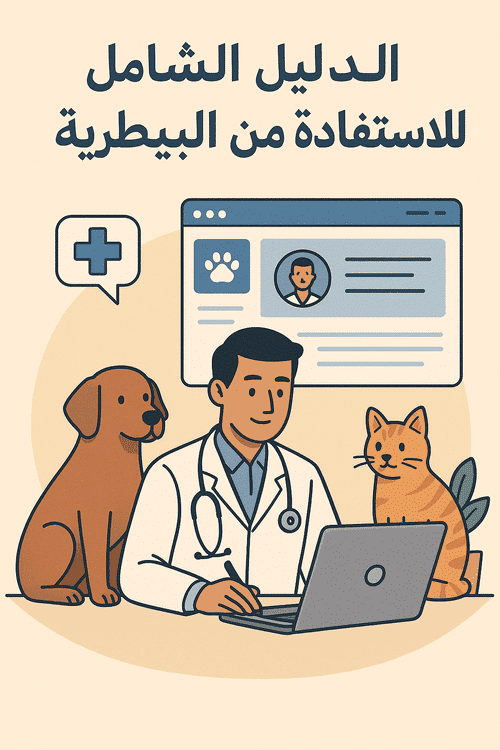Introduction
Pet keeping is not merely a hobby, but a responsibility that requires knowledge and awareness of proper care principles. Whether you are raising a dog, cat, pet bird, or ornamental fish, ensuring the health and happiness of your pet starts with proper nutrition and regular veterinary care, in addition to providing a safe and suitable environment. In this article, veterinarians present you with a comprehensive guide for pet care, including everything you need to know to give your pet a healthy and happy life.
🐶 Dog Care
✅ Optimal Nutrition for Dogs
- Age and size-specific diets: Puppies require protein- and energy-rich food, while adult dogs need balanced meals with lower fat content.
- Meal frequency:
- Puppies: 3–4 meals per day
- Adult dogs: 2 meals per day
- Forbidden foods: Chocolate, onions, grapes, caffeine, and cooked bones.
✅ Health Care and Vaccinations
Core vaccines for dogs include:
- Rabies
- Parvovirus
- Distemper
- Canine Hepatitis
- Leptospirosis
Veterinarians recommend starting vaccinations at 6–8 weeks of age, followed by boosters according to the local veterinary schedule.
✅ Behavioral and Psychological Care
- Provide daily exercise (e.g., walking, playing)
- Mental stimulation (puzzle toys)
- Early training for obedience and housebreaking
🐱 Cat Care
✅ Cat Nutrition
- Optimal diet: Commercial balanced food containing taurine, an essential amino acid for cats.
- Avoid cow’s milk as it may cause diarrhea.
- Meal frequency: 2–3 times daily, with free-feeding possible for indoor cats.
✅ Health and Regular Vaccinations
Core vaccines include:
- Calicivirus
- Feline Herpesvirus
- Panleukopenia
- Rabies
✅ Cat Environment
- A clean litter box at all times
- Scratching posts and climbing areas
- Daily interaction sessions to strengthen the bond with the owner
🐦 Pet Birds Care
✅ Proper Nutrition
- Parrots: A mix of seeds, grains, vegetables, and safe fruits
- Canaries & Zebra finches: Small seeds as a base diet plus vegetables
- Avoid avocado, chocolate, and salt
✅ Health Care
- Signs of a healthy bird: glossy feathers, constant activity, normal droppings
- Routine check-ups: at least every 6 months with a veterinarian
✅ Environment and Interaction
- A spacious, clean cage
- Toys for energy release
- Daily interaction to prevent stress or depression
🐠 Aquarium Fish Care
✅ Tank Requirements
- Tank capacity: Depends on fish number and size
- Proper filtration: To maintain water purity
- Temperature: Stable according to species (e.g., 24–26°C for tropical fish)
✅ Nutrition
- Feed twice daily in small amounts
- Variety of food: dry, frozen, or live depending on species
✅ Important Tips
- Avoid overcrowding the tank
- Do not mix aggressive species with peaceful ones
- Weekly partial water change (25%) to prevent ammonia buildup
📋 Sample Vaccination Schedule (for Dogs and Cats)
| Age | Dogs | Cats |
|---|---|---|
| 6–8 weeks | DHPP (Distemper, Parvovirus, etc.) | FVRCP |
| 12 weeks | DHPP + Rabies | FVRCP + Rabies |
| 16 weeks | Booster | Booster |
| Annually | DHPP + Rabies | FVRCP + Rabies |
🧠 General Tips for All Pet Owners
- Veterinary check-ups at least once every 6 months
- Regular nail trimming and ear cleaning
- Parasite control (worms, fleas, ticks)
- Maintain a medical and vaccination record for each pet
- Provide psychological care and daily interaction
Conclusion
Pets require comprehensive health, nutritional, and psychological care to live long and happy lives. By following veterinarians’ advice and adhering to preventive programs, you will be able to build a strong and safe relationship with your pet. Never hesitate to consult a professional veterinarian if you notice any changes in your pet’s behavior or health.





